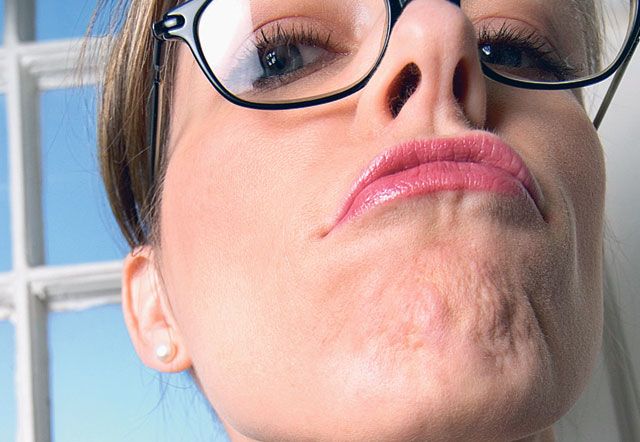Women are more egocentric and narcissistic than they used to be, according to extensive research by two psychologists in the US.
More women think the universe revolves around them, with a deluded sense of their fabulousness, and believe they are cleverer, more talented and more attractive than they actually are. They have trouble accepting criticism and extending empathy because they are so preoccupied with themselves.
Sense of entitlement
Narcissistic or egotistical women have an overwhelming sense of entitlement and arrogance. According to researchers in the US, there is growing evidence of an epidemic of ego-itis everywhere.
Once a traditionally male syndrome, narcissism generally begins at home and in schools, where children are praised excessively, often spoiled rotten and given the relentless message that they are “special”.
Psychology professors Jean Twenge and Keith Campbell analysed studies on 37,000 college students in 2006. In a survey, 30 per cent of them said they believed they should get good grades just for turning up.
And it’s not just about how intelligent they think they are. In the workplace, in friendships, even in motherhood, the pervading culture seems to have become one of competitiveness, superiority and one-upmanship.
But the sphere in which the signs of self-obsession are perhaps most obvious, and the consequences most immediately felt, is the dating one.
Wanting perfection
In a recent magazine article, four women in their late twenties and thirties shared their thoughts about why they were still single. A 39-year-old beauty director claimed to be too independent for a relationship.
The second woman, a music agent, said she was an alpha female — independent, feisty, strong-minded, high-achieving and intimidating. She pointed out that she owned a gorgeous flat, had a nice car, was a member of a fancy gym and wore designer dresses. She believes she’s too successful and too well-educated for most men. The third woman, an arts writer and curator, has been having too much fun to settle down.
Another said she was too picky. She was looking for a guy who is (just) tall enough. He should be good-looking and successful. He must also be long on good jokes, with a decent sideline in bad ones that only she finds funny.
He should have no special dietary requirements and to always be discerning without being fussy. He should be clever without making her feel stupid. He should “get” but not “know” fashion. And the list went on.
She concluded that she would rather eat flies than share her Sunday with anyone who fails to measure up to her idea of Mr Perfect.
Of course, there is nothing wrong with having high expectations. But being delusional and having a totally unrealistic blueprint are different stories altogether.
And they often go hand in hand with ego-it is, as Margot Medhurt knows only too well.
She is the founder of Yours Sincerely, an Edinburgh-based personal dating and introduction agency for professionals. She has almost 30 years of experience in the industry and has noticed a significant rise in this phenomenon in recent years.
“Most women who joined a dating agency had a pretty good idea of where they stood in the eligibility stakes,” she said. “But in the past few years, I’ve noticed that there are a significant number of women who don’t. They are in their thirties and there is a discrepancy between how they perceive themselves and how others see them,” she added.
“They are often very plain but see themselves as being absolutely fabulous, exceptional people. They invariably reject every guy’s profile I send them. But if a guy rejects their profile, there is all hell to pay.
“The idea that a guy might not find them as amazing as they find themselves doesn’t enter their head. They often become indignant and angry towards me, demanding to know why a guy dared to turn them down. Most people accept the facts of the dating game: some people will find you attractive and others won’t, just the way you’ll be drawn to some but not others.
‘These women, however, are unable to get their heads around the fact that the rest of the world might not share the distorted, inflated view they have of themselves,” Medhurt added.
According to the American research, there has been a 67 per cent increase in it over the past two decades, mainly among women.
An estimated 10 per cent of America’s population suffers from narcissism as a full-blown personality disorder. The symptoms include: a grandiose sense of self-importance; a requirement for excessive admiration and a sense of entitlement.












